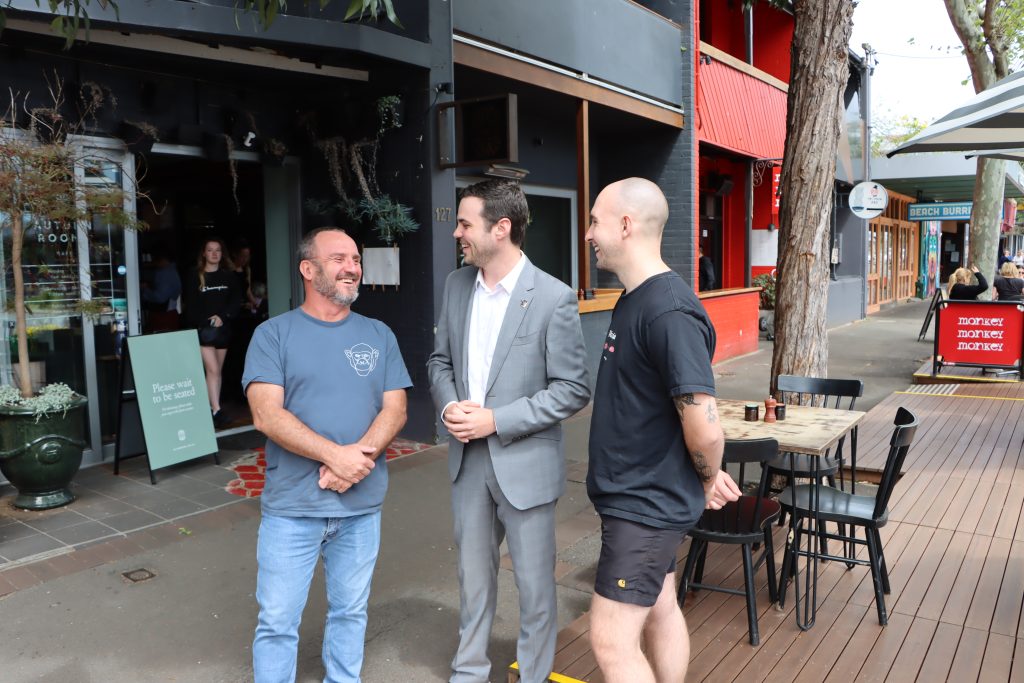
Deputy Lord Mayor Declan Clausen with local business operators | Supplied
Changes to Darby Street’s outdoor dining set up could be here to stay as a six month trial wraps up.
Since September last year, locals flocking to Newcastle’s go-to eat street have had the chance to test out a temporary raised outdoor dining deck, and other alterations designed to make the busy dining and shopping strip more pedestrian-friendly.
With the trial coming to an end a decision is looming on whether the changes will become permanent. A report prepared for Councillors has recommended some of the infrastructure be retained ahead of a vote at next week’s meeting.
Key features recommended to be retained include the raised outdoor dining deck, a pedestrian crossing adjacent to the Headphones Courtyard and the reduction of the speed limit to 30km/h.
Consultation has been undertaken with businesses, residents, and the wider community before and during the trial. According to Council the feedback showed strong support with 69% of people who filled out the online survey in favour of keeping the temporary infrastructure. Over the first three months of the trial a 67% increase in visitation to Darby Street was reported, along with a 13% spike in cyclist activity.
Deputy Lord Mayor Declan Clausen said he worked closely with a small number of businesses and residents who raised concerns about the loss of parking and noise impacts from the traffic calming infrastructure.
“We had some feedback that noise was being generated by speed humps at the southern entry of the 30km/h zone while others provided feedback about cyclist safety at the northern entry,” Cr Clausen said.
“Should the infrastructure be retained, these items would be addressed with a revised design for the traffic calming infrastructure, which would be placed on public exhibition in April for the community to review and comment on.”
“We also heard that the community supported the continuation of the free, two-hour timed parking in the Queen Street carpark which was introduced to compensate for on-street parking losses.”
The trial was made possible with a $500,000 grant from the NSW Government through the Streets as Shared Spaces program (Round 2) and funding from the City of Newcastle’s Urban Centres Program.

